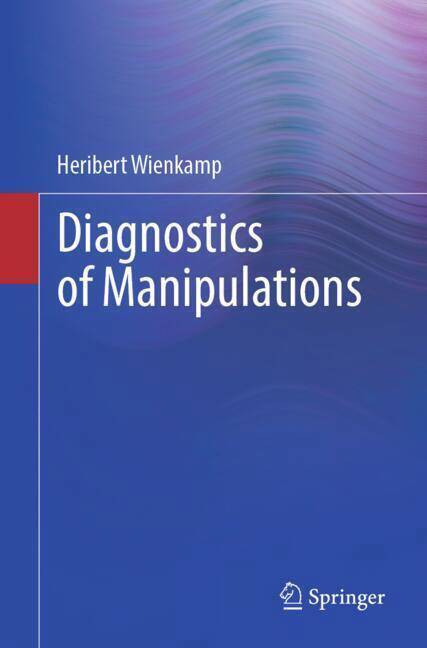
- Afhalen na 1 uur in een winkel met voorraad
- In januari gratis thuislevering in België
- Ruim aanbod met 7 miljoen producten
- Afhalen na 1 uur in een winkel met voorraad
- In januari gratis thuislevering in België
- Ruim aanbod met 7 miljoen producten
Omschrijving
Manipulations are encountered "at every turn" and in countless everyday situations. If this is the case, the (early) recognition of manipulations takes absolute precedence.
This is especially true for specialists regarding their diagnostics and analysis. In everything that is presented and offered in verbal expressions, the tentative differentiation between fiction and truth is the focus of the events. Because only a reasonably complete and truthful outline of the problem contains the potential for gaining insight or uncovering lies or half-truths.
Lies, deceptions, excuses, etc., are manipulative activities or reactions that are intended to create a different, namely consciously false impression. However, manipulative maneuvers can be observed and require further investigation not only in interpersonal situations but also in larger social contexts or systems, for example, to successfully play games like chess or to solve problems through regulations accepted by all.
This publication could particularly benefit the following target groups: executives, HR experts in academia and practice, and specialists who need to assess the credibility of statements based on "fiction and truth" or who are involved in other support mandates.
Specificaties
Betrokkenen
- Auteur(s):
- Uitgeverij:
Inhoud
- Aantal bladzijden:
- 158
- Taal:
- Engels
Eigenschappen
- Productcode (EAN):
- 9783662704349
- Verschijningsdatum:
- 28/01/2025
- Uitvoering:
- Paperback
- Formaat:
- Trade paperback (VS)
- Afmetingen:
- 156 mm x 234 mm
- Gewicht:
- 249 g

Alleen bij Standaard Boekhandel
Beoordelingen
We publiceren alleen reviews die voldoen aan de voorwaarden voor reviews. Bekijk onze voorwaarden voor reviews.









